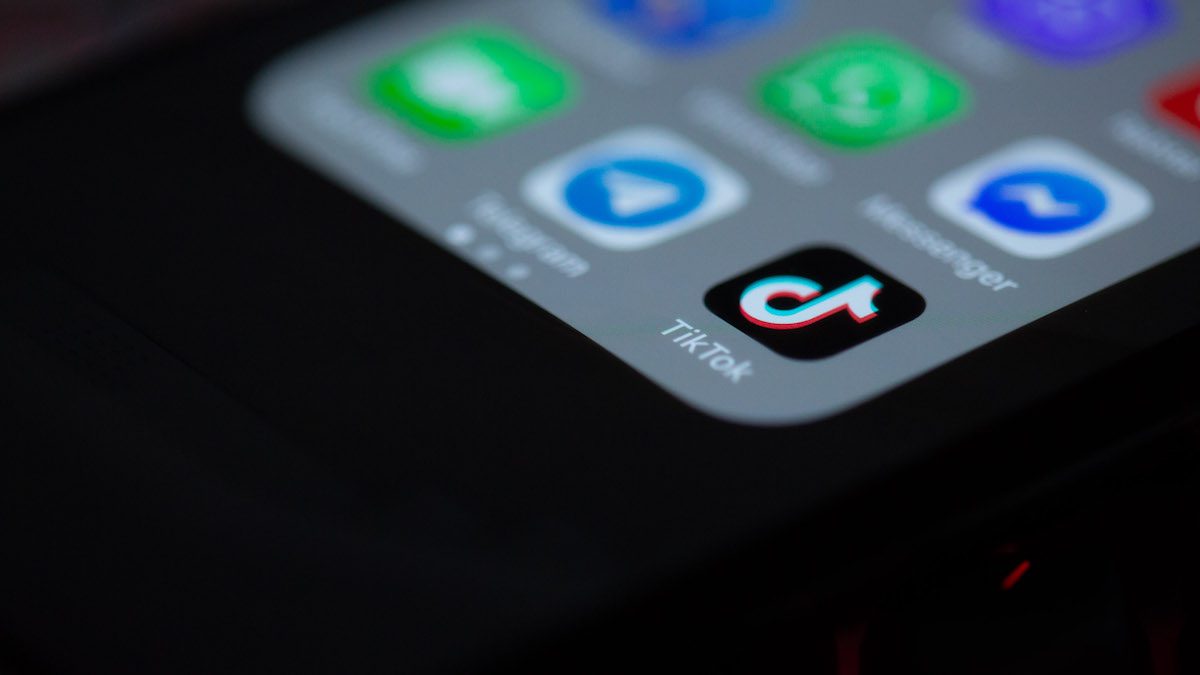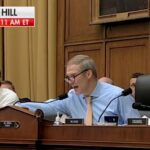Global Courant 2023-05-18 23:41:31
The recently announced ban on ByteDance’s TikTok app in Montana, which will affect at least 200,000 TikTok users, has become a curtain on a national debate over security, privacy and free speech in the United States.
Greg Gianforte, the governor of Montana and a Republican, signed a bill on Wednesday that would ban app stores, such as those owned by Google and Apple, from making TikTok available for download within the state starting January 1 next year.
Individual TikTok users will not be fined, but TikTok and app stores are liable for fines of US$10,000 per day for breaking the law.
Before that, major Western countries and at least 20 US states have already banned the app on government devices. Congress is discussing a bill that would give the US president the power to completely ban TikTok in the US.
China’s foreign ministry has criticized the West for suppressing TikTok, which has about 1.05 billion monthly active users worldwide. However, Beijing has not yet launched retaliatory actions. After all, US social media apps, including Twitter and Facebook, have never been available in China.
Some commentators suggested that China investigate Tesla because its cars could pose a threat to China’s national security, especially during wartime. That proposal was met with skepticism from analysts who said Beijing won’t be unkind to Tesla as the company brings new technologies into the country and sets a standard for electric vehicles that Chinese competitors are trying to productively emulate.
“TikTok is just one app linked to foreign opponents,” says Gianforte tweeted on Wednesday. “To protect Montanans’ personal and private information from the Chinese Communist Party (CCP), I have banned TikTok in Montana.”
Montana Governor Greg Gianforte signs the TikTok ban. Photo: Daily Montanan
Gianforte also ordered the ban on ByteDance’s CapCut and Lemon8, Russia’s Telegram Messenger, Pinduoduo’s Temu, and Tencent’s WeChat. He said that Montana government personnel, as well as outside companies doing business for or on behalf of the government, should remove these apps and TikTok from their work devices starting June 1.
Gianforte’s decision has been praised by some netizens, but young people complain that their rights to use social media are being sacrificed. Some others said they will use virtual private networks to download banned apps, just as mainland China does to access foreign websites.
TikTok said in a statement that Gianforte signed a bill that violates the First Amendment rights of the people of Montana by illegally banning TikTok. It said it will continue to work to defend the rights of its users inside and outside Montana.
“Montanans are unquestionably exercising their First Amendment rights when they post and consume content on TikTok,” said Jameel Jaffer, executive director of Columbia University’s Knight First Amendment Institute, say in a statement. “Because Montana cannot determine that the ban is necessary or tailored to any legitimate interest, it is almost certain that the law will be struck down as unconstitutional.”
Last December, the US Congress approved the No TikTok by law on government devices, which requires federal agencies to remove the Chinese app from their devices. On Dec. 30, U.S. President Joe Biden signed the bill into law, which affects about 4 million government employees.
After the US and Canada forbidden TikTok on government devices The European Commission, the United Kingdom and Australia followed suit in February. On February 24, Michael McCaul, chairman of the House of Representatives Foreign Affairs Committee, introduced the Deterring America’s Technological Adversaries Act, or DATA Act, which, if passed and signed, will allow the president to limit the use of TikTok throughout the United States. country to ban.
In March, the Committee on Foreign Investment in the US (CFIUS), an inter-agency committee of the US government, urged ByteDance to sell shares of TikTok.
Wang Wenbin, a spokesman for China’s foreign ministry, said on March 16 that the US has generalized the concept of national security and abused its state power to suppress foreign companies.
“Try Tesla!”
After TikTok chief executive Shou Zi Chew was questioned by US lawmakers for nearly six hours on March 23, some Chinese commentators suggested that US entrepreneur Elon Musk should be similarly questioned in China because his Tesla cars and Starlink project could pose a national security risk. threat.
Security risk for China? Elon Musk with cadets at the US Air Force Academy. Photo: Fox21 News Colorado
This theme has spread on the internet. “If Tesla cars are allowed to freely collect geographic information in China during wartime, they can detect some Chinese military vehicles on the roads and send this information back to the US for launching precision attacks,” says a Guangdong-based writer. “China will lose all secrets if millions or tens of millions of Tesla cars help collect data for foreign adversaries.”
Against a backdrop of rising tensions between China and the US, the Chinese government should monitor whether Tesla car radars and detectors will be used to collect road data for military use, Bai Yimin, a director of the National Japanese Economic Association , Chinese Academy of Social Sciences , say in a movie.
“In the Ukrainian-Russian war, we saw Starlink provide a large amount of intelligence to Ukraine and cause great losses to the Russian military,” said Bai. “We are also aware that Elon Musk often visits US military schools and has photos taken with military officers. We must seriously investigate and assess whether Tesla will threaten China’s national security.”
He adds: “Our relevant government departments should question Musk on all of these issues. But if the word ‘ask’ is a bit too strong, let’s say ‘invite’.”
According to media reports, Musk made an unobtrusive visit to China for a few days from April 8.
In early 2021, the Chinese government banned military personnel and sensitive state-owned companies and government departments from using Tesla cars. Musk has said Tesla cars will not become spy tools. He is also against the ban on TikTok in the US.
Some technology experts say China is unlikely to retaliate against big US companies like Tesla or Apple, which bring new technologies to the country and also create jobs. They claim there are more effective ways to hurt the US.
“When the US suppressed Huawei technologies, some people suggested that China restrict the sale of iPhones in the country,” said a Chinese writer. say in an article. “But why didn’t our government do it? It’s because a significant portion of Apple’s supply chain is now based in China, bringing in businesses and technologies for our precision manufacturers and creating jobs.
Read: China roars as US pressures ByteDance to sell TikTok
Follow Jeff Pao on Twitter at @jeffpao3
Similar:
Loading…








